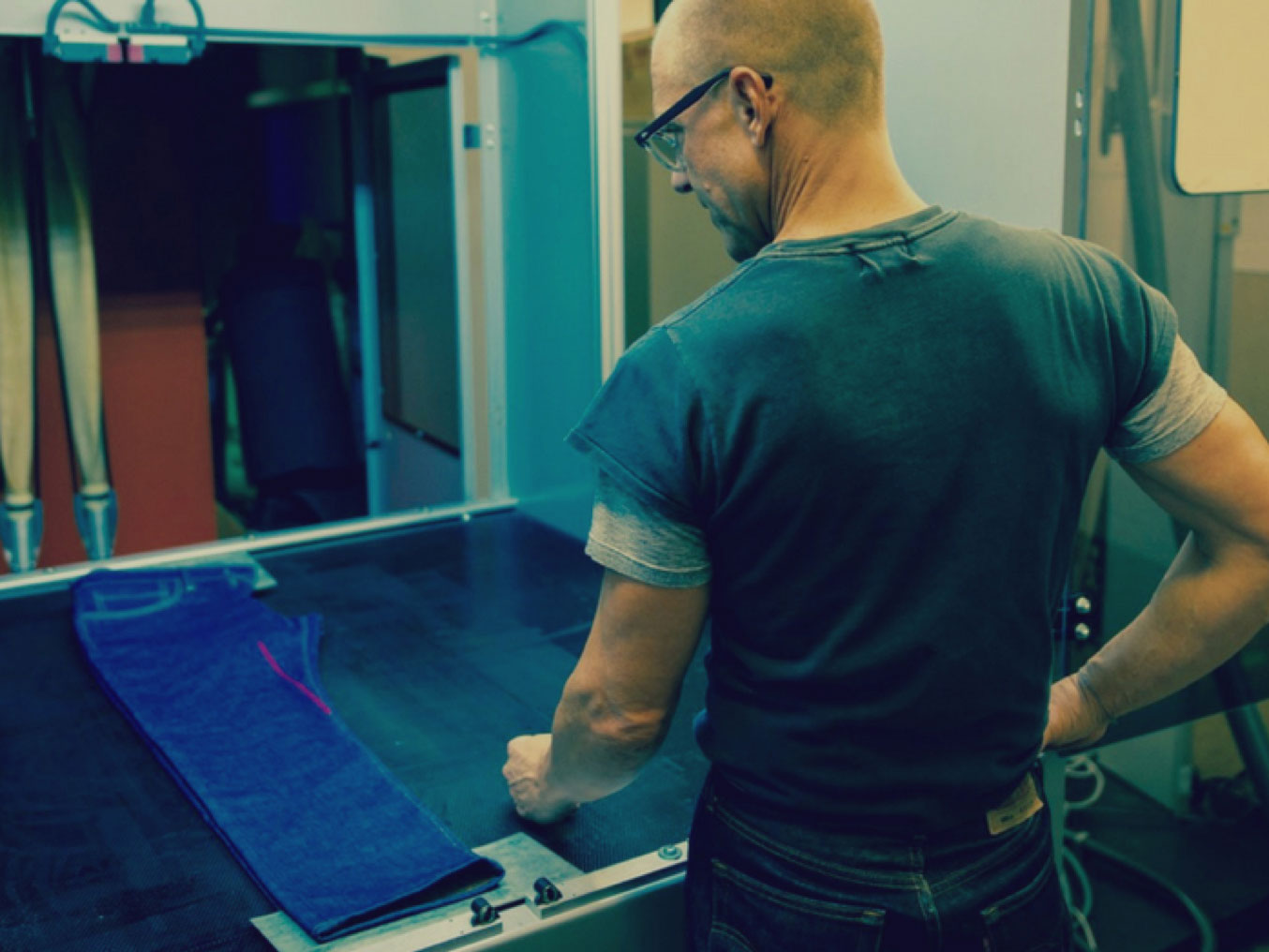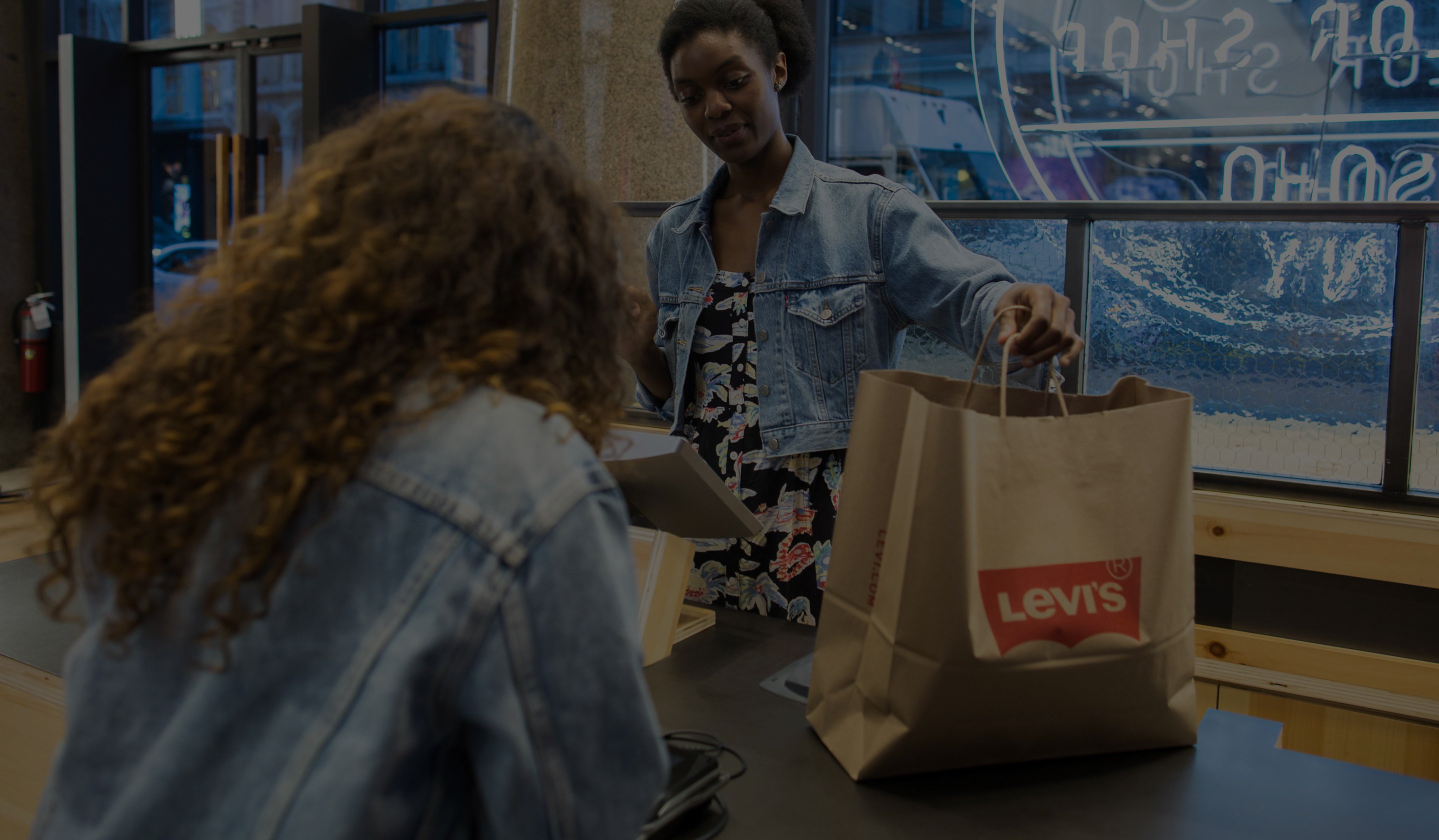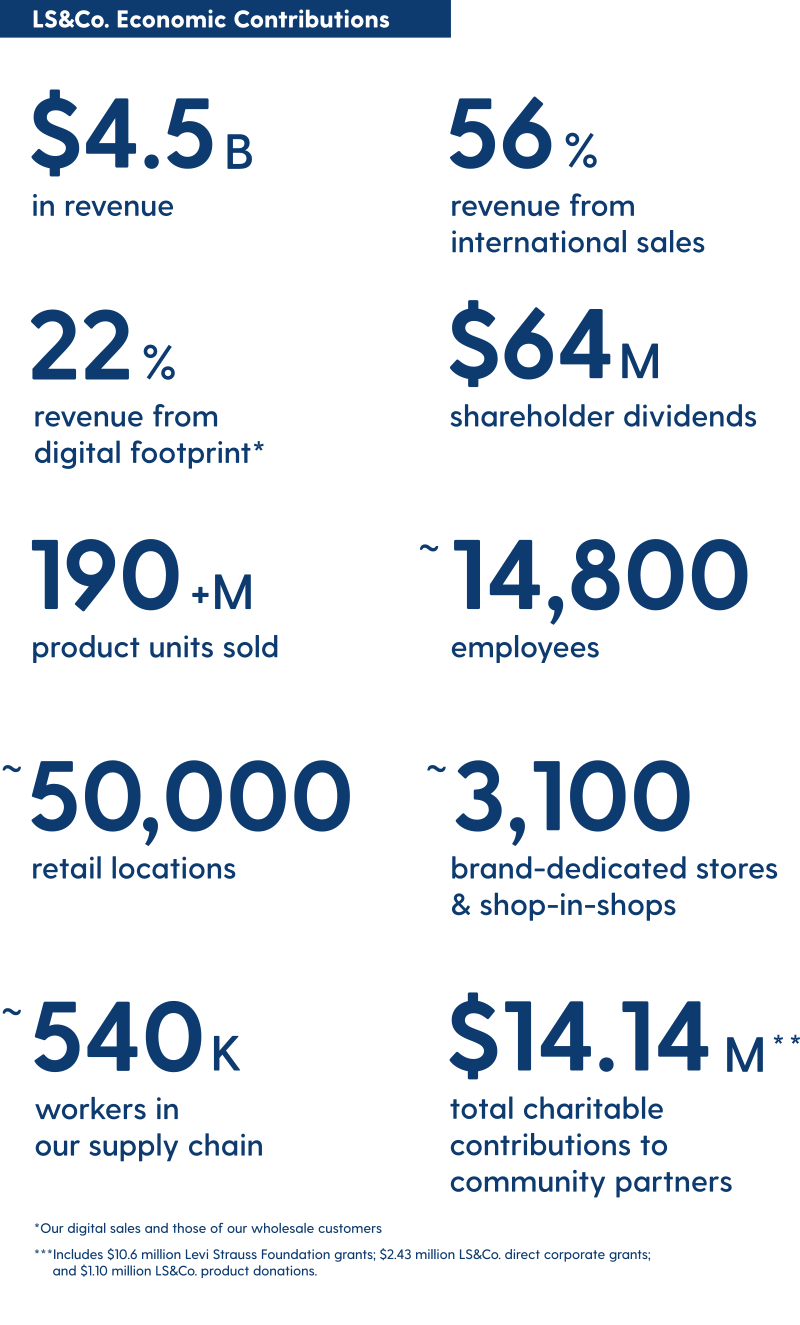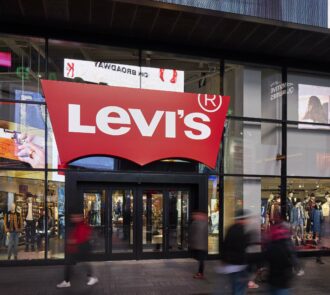Accounting for Sustainability
LS&Co.’s Chief Financial Officer (CFO), Harmit Singh, joined CFOs from three other companies to launch the U.S. chapter of Accounting for Sustainability (A4S), an organization seeking to mobilize financial leaders to promote the business case for sustainability. LS&Co. also held the group’s first U.S. workshop at our offices in San Francisco, and Harmit Singh began serving as the U.S. Co-Chair of A4S in 2021. The group was born out of a UK-based organization founded by HRH Prince Charles.
A4S members promote sustainable business practices based on the understanding that these practices provide both financial and social value. The organization is working to spread the word about the importance of moving from setting sustainability targets to identifying and executing strategies to meet those targets. This means getting finance teams involved, working side by side with their sustainability colleagues to quantify returns on investment for specific programs, helping suppliers access funding to improve sustainability performance, estimating savings on operating costs, and engaging in a host of other internal collaborations.
Harmit expounded on some of these points in a keynote talk he gave at the Integrate conference in 2020:
For us, ESG is grounded in both our history, and our awareness of what investors, employees and the public expect from business today. We have a working philosophy called “profits through principles” that guides our actions. In essence, it means that how we make our products is as important as what we make.
This isn’t new. It’s been part of the company and our values for many years. It pushes us to choose the harder right over the easier wrong, and to strive to make an outsized impact on the world. But if this moment has taught us anything, it’s that you have to be nimble, flexible, and ready to adapt. That is how you both meet the moment and build for the long term.
We used to talk about maintaining “license to operate” by being a good corporate citizen. Now we talk about securing “license to grow” by delivering value to communities and actively trying to make the world a better place. With the pandemic upending lives, livelihoods, and industries, we know that we have to earn that license to grow — just as we have to earn the right to be the brand people turn to in this moment, because of the quality of our products, our values, and our sustainability commitments.
Our sustainability strategies and our broader ESG approach are critical to this work. It is more critical to my work than it’s ever been. That’s part of a larger shift we’ve seen in recent years, where the role of the CFO has evolved enormously with regard to sustainability. I think most of us see it now: Sustainability is essential to our operations, our performance and our strategy to create long-term value for all stakeholders.























